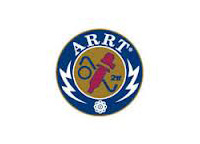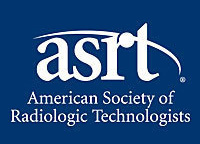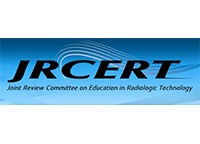Michigan Radiologic and Imaging Science Consortium
CT Program
offered by Mid-Michigan College, Kellogg Community College and Grand Rapids Community College
through
Michigan Colleges Online
Program Description
Computed Tomography Technologists are highly skilled professionals trained to operate CT equipment, which produces cross-sectional images of patients' bones, organs and tissue that are used to diagnose medical conditions in medical facilities and outpatient centers under the direct supervision of a health care provider. According to the 2015 U.S. Bureau of Labor Statistics Occupational Outlook Handbook the field has a 9% growth outlook through 2022. The CT program is designed not only to foster the skills and knowledge necessary for competent practice, but also places emphasis on professional attitudes, values and behaviors that encourage the professional growth of the individual student.
The CT program is a certificate program. Students must have graduated from an accredited program and be a registered radiographer RT(R). The program has been developed to be consistent with standards and requirements of the American Registry of Radiologic Technology (ARRT). Upon completion of the CT program graduates will be eligible to take the ARRT-CT exam. Upon passing the CT exam, Radiologic Technologists have earned their RT(R)(CT).
The MiRIS CT program is designed not only to foster the skills and knowledge necessary for competent practice in CT, but also places emphasis on professional attitudes, values and behaviors that encourage the professional growth of the individual student.
Clinical learning experiences are provided by affiliating hospitals, clinics and other CT provider facilities. Didactic learning experiences occur in supportive college course work delivered through an online environment. Both are equally important to the development of the competent CT technologist.
Under these philosophies, the program assumes the responsibility of a facilitator of learning. Specifically, it will plan, select, administer, and assess learning experiences. These experiences are developed to meet established objectives and eligibility requirements of the American Registry of Radiologic Technologists (ARRT) to complete the CT certification exam.
The handbook serves as an informational document listing the policies and processes students are subject to during both didactic and clinical education. The handbook is not all-inclusive addressing all situations and circumstances that may present therefore, should there be an occurrence not addressed in this document, an addition may be added in the form of an addendum.
The MiRIS CT program prepares students to become eligible to complete the CT certification exam administered by the American Registry of Radiologic Technologists (ARRT). The program terminates in an award of a Certificate of Completion as determined by the college issuing the award. The program has been developed to be consistent with standards and requirements of the American Society of Radiologic Technologists (ASRT); the American College of Radiology (ACR); the American Registry of Radiologic Technologists (ARRT) and the Michigan Radiologic and Imaging Science (MiRIS) consortium.
-
There are 16 core program credits required for program completion.
-
A student must maintain the minimum grade requirement as indicated for each course and in accordance with the policies of the college issuing the certificate.
-
Application to complete the certification examination administered by the ARRT is granted only if the student fulfills all academic and clinical criteria established by the ARRT, the MiRIS program and the college issuing the terminal award of a degree or certificate. Please refer to the ARRT Certification Handbook or contact the ARRT for eligibility requirements.
-
Effective January 1, 1994, individuals having been convicted of a felony or misdemeanor must file a pre-application with the ARRT in order to obtain a ruling on the impact of the conviction on their eligibility to complete the ARRT certification examination. Information about the pre-application process may be found on the ARRT’s website. Visit www.ARRT.org. The pre-application process can be found within the "Ethics" link. It is strongly encouraged that students pursue the pre-application process either prior to entering the program or as early in the program as possible to avoid investing time, money, and effort should they be found ineligible to complete the certification exam.
-
A student must complete and pass all clinical access requirements as determined by clinical education providers. These include health related evaluations, criminal background check(s) and drug screening. Failure to successfully pass any of these requirements will require that the student withdraw from the CT program.
-
All policies regarding certificate or degree completion can be found in the catalog of the college issuing the certificate or degree, or by contacting the MiRIS Consortium Council member of the college issuing the certificate or degree (Radiography Program Director).
The mission and purpose of the MiRIS CT Program is to provide for both the personal and professional career development of each CT student. The general goals of the program are:
-
The students will demonstrate entry level knowledge and competency in the practice of CT.
-
The students will demonstrate professional attitude values and behaviors necessary for professional success.
-
Students that will demonstrate critical thinking and communication skills as responsible members of the health care team.
-
Graduates will be employable and meet the needs of the health care community.
-
Graduates of the program will be well prepared to successfully complete the ARRT certification examination.
Graduates of the MiRIS CT program will be entry-level CT technologist prepared to
complete the ARRT certification exam.
Upon program completion, students will:
-
Apply knowledge of anatomy, physiology, positioning, and CT parameters to accurately demonstrate anatomical structures.
-
Determine imaging parameters to achieve optimum imaging and reduce radiation exposure.
-
Evaluate images for appropriate positioning and image quality.
-
Apply the principles of radiation safety and contrast application for the protection of the patient, technologist, and others.
-
Recognize emergency patient conditions and initiate life-saving first aid and basic life-support procedures.
-
Evaluate the performance of CT systems, know the safe limits of equipment operation, and report malfunctions to the proper authority.
-
Participate in CT quality assurance programs.
-
Provide care and comfort in regard to the holistic health of the patient, technologist, and others.
-
Provide patient education related to MCT procedures.
More information can be found in the Student Handbook.
| Course Number | Course Title | Credit |
|---|---|---|
| CTGT 210 | CT Patient Care and Safety | 1 |
| CTGT 215 | Principles of CT | 1 |
| CTGT 230 | CT Procedures and Pathophysiology 1 | 3 |
| CTGT 240 | CT Clinical Practice 1 | 3 |
| CTGT 220 | CT Instrumentation | 2 |
| MRIT 231 | CT Procedures and Pathophysiology 2 | 3 |
| CTGT 241 | CT Clinical Practice 2 | 3 |
| Total Program Credits | 16 |
| Spring/Winter | Summer |
|---|---|
| CT Patient Care and Safety | CT Instrumentation |
| Principles of CT | CT Procedures and Pathophysiology 2 |
| CT Procedures and Pathophysiology 1 | CT Clinical Practice 2 |
| CT Clinical Practice 1 |
| Contact Person | E-mail address | |
|---|---|---|
| Amy Lee, Ed.D. RT(R)(MR), MRSO | Michigan Community College Association | alee@mcca.org |
https://www.midmich.edu/academics/programs-of-study/health-sciences/rad/application-selection
| ARRT | ASRT | JRCERT |
|---|---|---|
 Visit the official website of the
American Registry of Radiologic Technologists.
Visit the official website of the
American Registry of Radiologic Technologists.
|
 Visit the official website of the
American Society of Radiologic Technologists.
Visit the official website of the
American Society of Radiologic Technologists.
|
 Visit the official website of the
Joint Review Committee on Education in Radiologic Technology.
Visit the official website of the
Joint Review Committee on Education in Radiologic Technology.
|